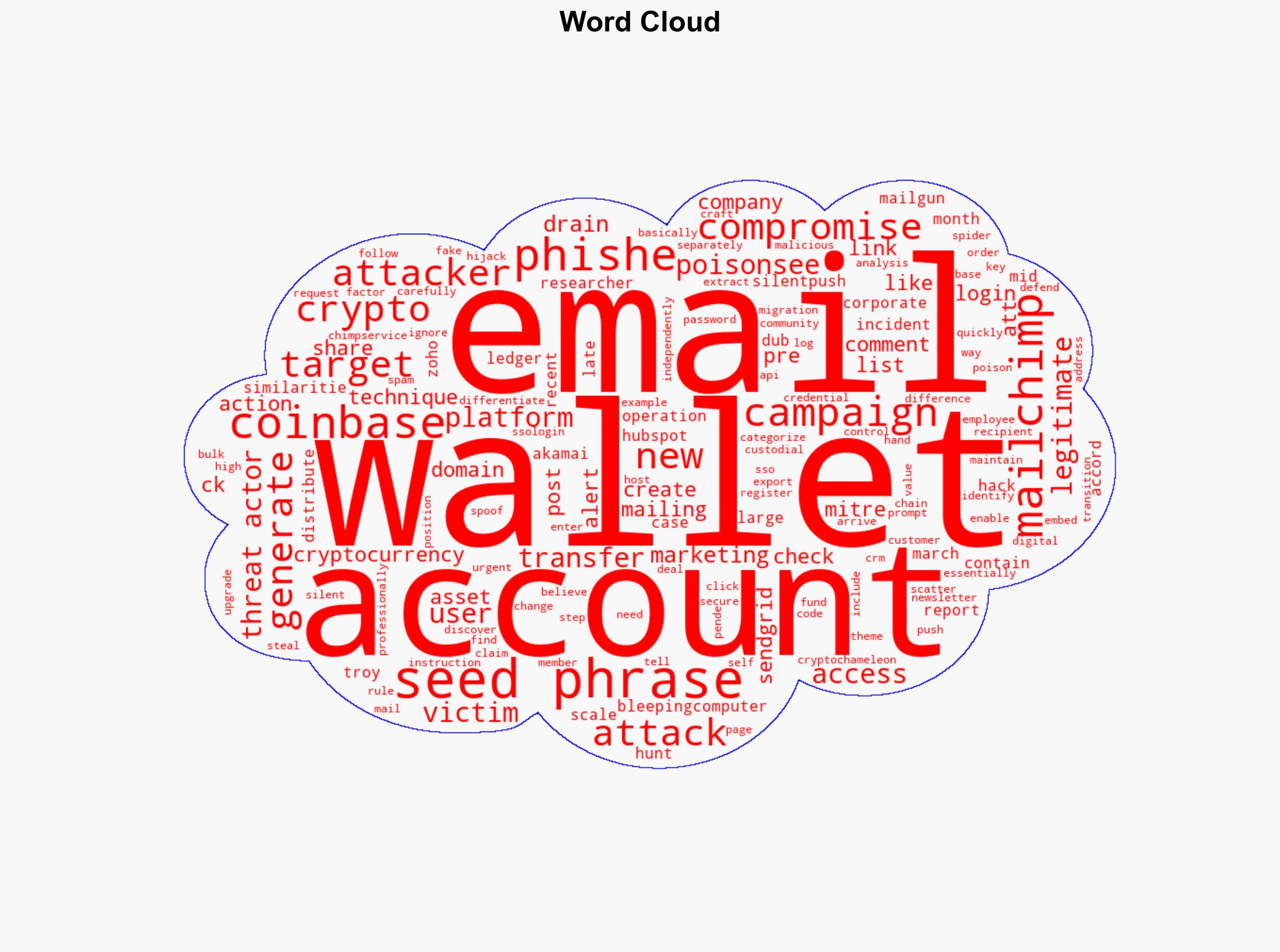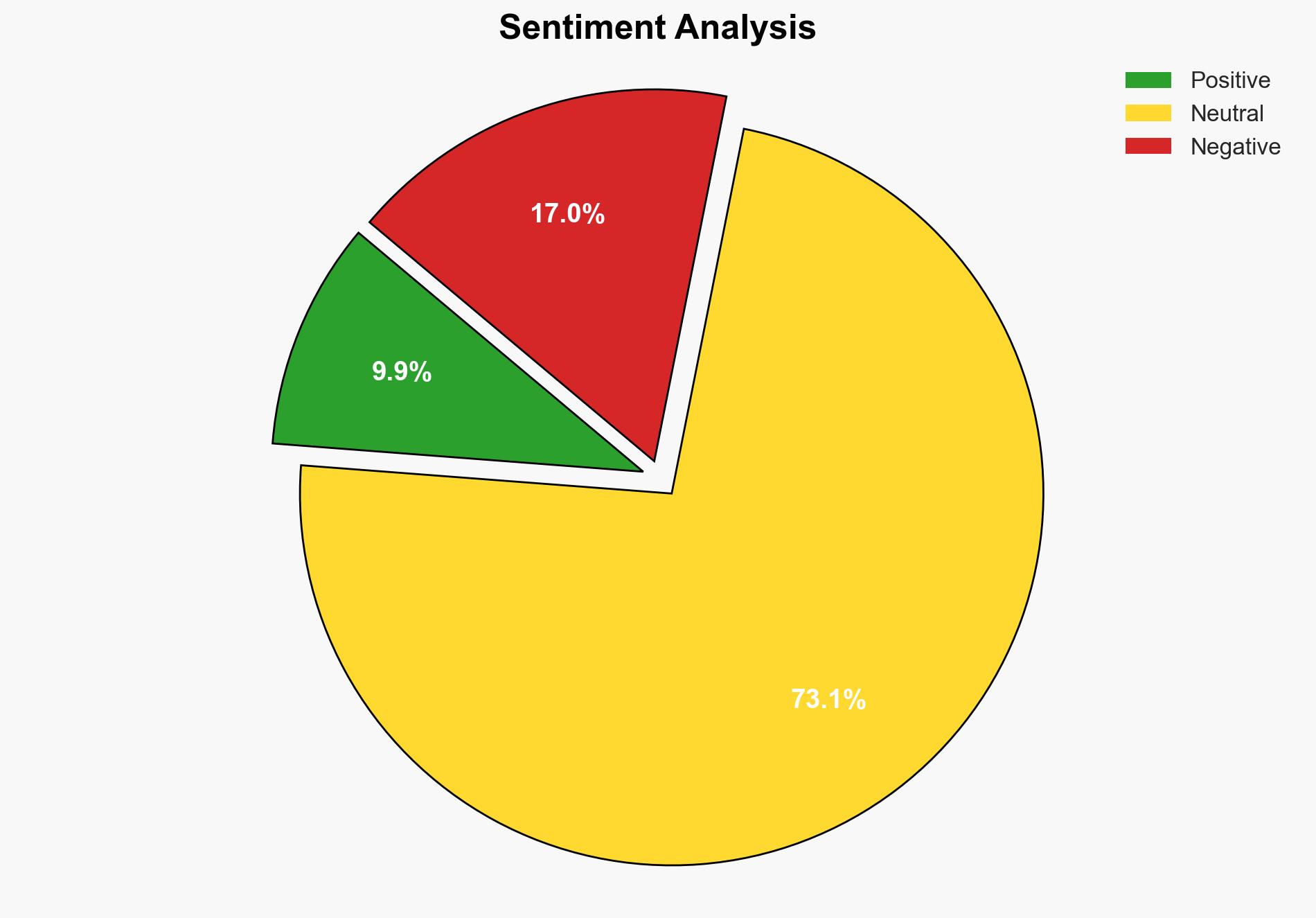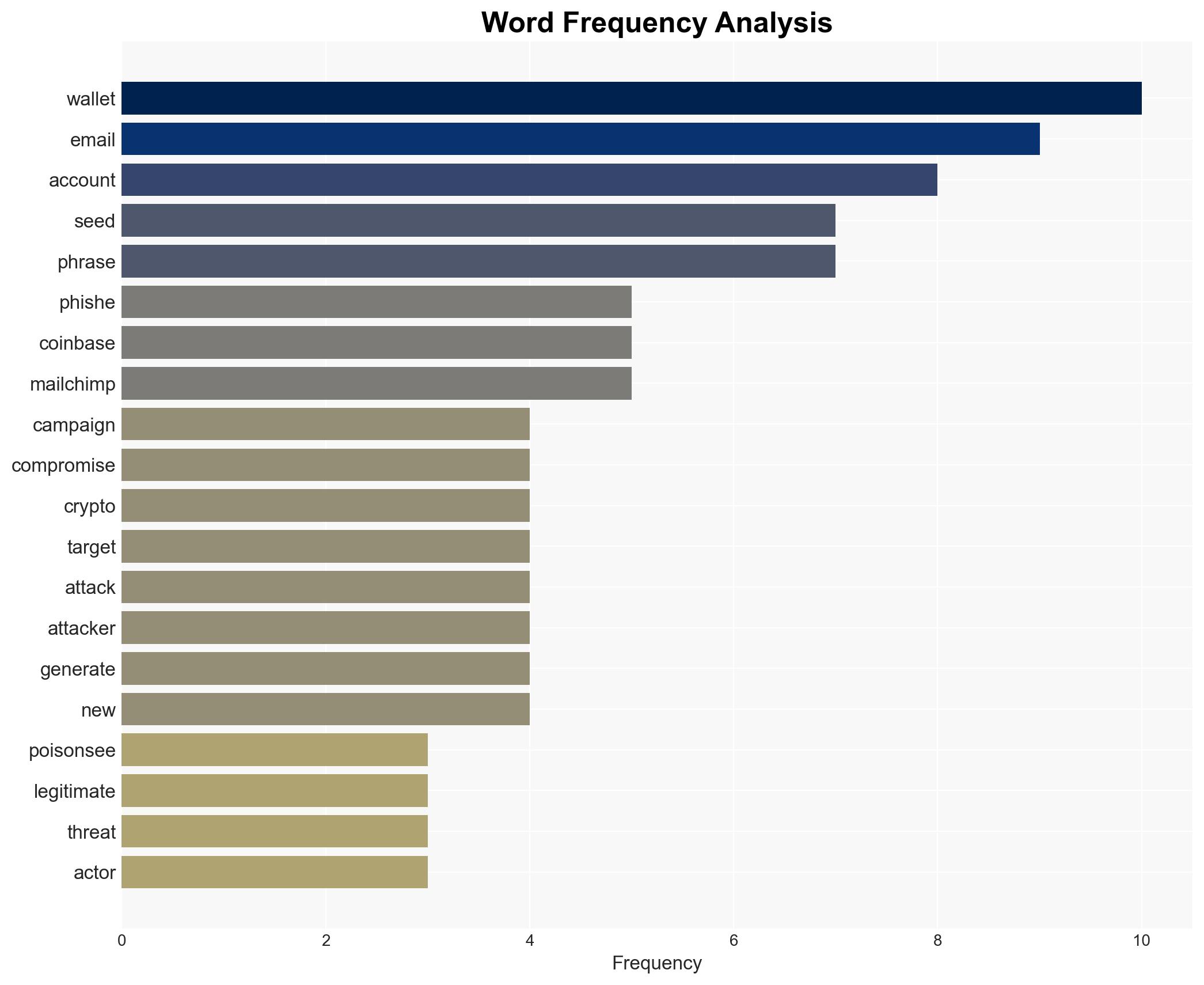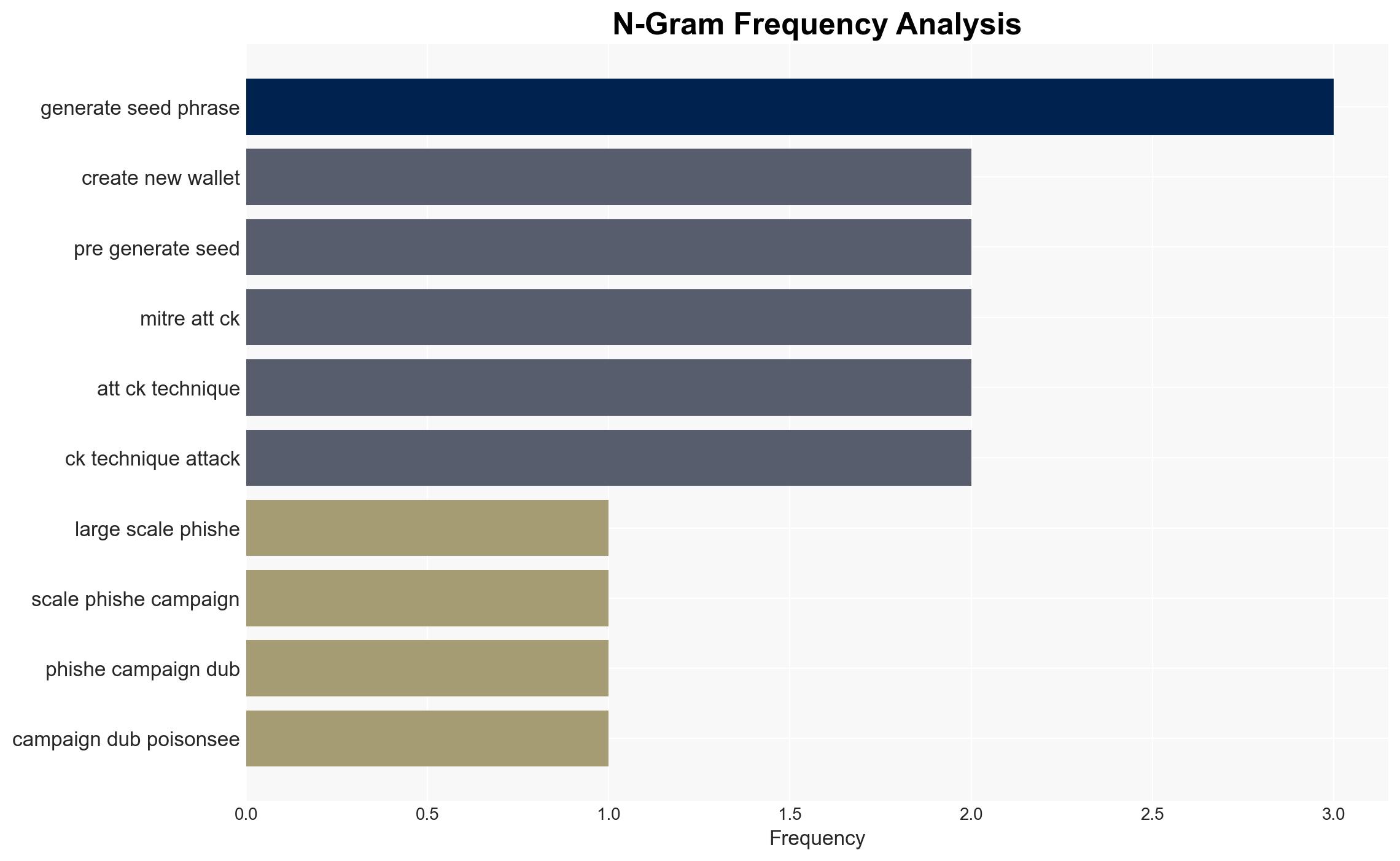PoisonSeed phishing campaign behind emails with wallet seed phrases – BleepingComputer
Published on: 2025-04-04
Intelligence Report: PoisonSeed Phishing Campaign Behind Emails with Wallet Seed Phrases – BleepingComputer
1. BLUF (Bottom Line Up Front)
The PoisonSeed phishing campaign has been identified as a significant threat targeting cryptocurrency users by distributing emails containing fraudulent wallet seed phrases. This campaign compromises corporate email marketing accounts, including those of major platforms such as Mailchimp and SendGrid, to disseminate these phishing emails. The primary objective is to drain cryptocurrency wallets by misleading users into transferring their assets to attacker-controlled wallets. Immediate action is required to mitigate the risks posed by this campaign, including enhancing email security protocols and user awareness.
2. Detailed Analysis
The following structured analytic techniques have been applied for this analysis:
General Analysis
The PoisonSeed campaign exploits compromised corporate email marketing accounts to send phishing emails containing crypto seed phrases. These emails are crafted to appear as legitimate communications from trusted platforms like Coinbase and Ledger. The attackers utilize sophisticated techniques to spoof email addresses and create fake login pages hosted on domains resembling legitimate services. Once users enter their seed phrases or credentials, attackers gain access to their cryptocurrency wallets, allowing them to transfer funds to their own accounts.
The campaign shares similarities with operations such as Cryptochameleon and Scatter Spider but is categorized separately due to distinct code differences. The attackers employ a multi-step attack chain, identifying high-value targets through access to CRM and bulk email platforms. They craft professional phishing emails that prompt users to take urgent actions, such as transitioning to a self-custodial wallet, which ultimately leads to the compromise of their digital assets.
3. Implications and Strategic Risks
The PoisonSeed campaign poses significant risks to the cryptocurrency sector, with potential spillover effects on financial stability and consumer trust. The compromise of major email marketing platforms highlights vulnerabilities in digital communication channels that could be exploited for broader cyber threats. The campaign’s success could embolden other threat actors, leading to increased phishing activities targeting both individuals and organizations.
National security implications include the potential for financial losses and destabilization of digital currency markets. There is also a risk of reputational damage to affected companies, which could undermine confidence in digital financial services and platforms.
4. Recommendations and Outlook
Recommendations:
- Enhance email security measures, including multi-factor authentication and advanced threat detection systems, to prevent unauthorized access to corporate accounts.
- Increase user awareness and education on identifying phishing attempts and securing cryptocurrency assets.
- Encourage regulatory bodies to establish guidelines for securing digital communication channels and protecting consumer data.
Outlook:
In the best-case scenario, swift action by affected companies and regulatory bodies could mitigate the campaign’s impact, restoring user confidence and securing digital assets. In the worst-case scenario, continued exploitation of vulnerabilities could lead to widespread financial losses and erosion of trust in digital financial systems. The most likely outcome involves a mixed response, with some improvements in security and awareness but ongoing challenges in fully countering sophisticated phishing campaigns.
5. Key Individuals and Entities
The report mentions significant individuals and organizations involved in the PoisonSeed campaign, including Troy Hunt and companies such as Coinbase, Mailchimp, SendGrid, HubSpot, Mailgun, and Zoho. These entities play critical roles in the unfolding events and are central to understanding the campaign’s scope and impact.




